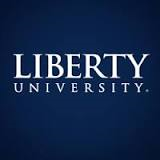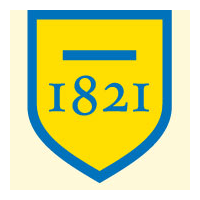What do they do?
Perform secretarial duties using specific knowledge of medical terminology and hospital, clinic, or laboratory procedures. Duties may include scheduling appointments, billing patients, and compiling and recording medical charts, reports, and correspondence.
Also known as:
Clinic Office Assistant, Dental Receptionist, Front Desk Receptionist, Medical Office Specialist, Medical Receptionist, Medical Secretary, Physician Office Specialist, Scheduler, Secretary, Unit Clerk, Unit Support Representative, Ward Clerk, Ward Secretary
-
6.8%
Change
Ranks #48 in job growth rate3,740Job Openings
Ranks #5 in net job growth
-
Ultimate Medical Academy
Clearwater, FL
-
Colorado Technical University-Colorado Springs
Colorado Springs, CO
-
Universidad Central de Bayamon
Bayam?n, PR
-
Widener University
Chester, PA
-
Ross College-Sylvania
Sylvania, OH
Looking for colleges that offer a specific major? Use the College Match Tool to find your best-matched schools and discover your estimated Net Price!
- Doctorate or Professional Degree (1%)
- Master's degree (3%)
- Bachelor's degree (16%)
- Associate's degree (16%)
- Some college, no degree (36%)
- High school diploma equivalent (25%)
- Less than high school diploma (3%)
Most Popular Majors that prepare Medical Secretaries and Administrative Assistants
-
#1
-
Degrees Granted
3,426
-
Female Students
3,320
-
Male Students
106
-
Median Starting Salary
$37,800
-
-
#2
-
Degrees Granted
2,994
-
Female Students
2,893
-
Male Students
101
-
Median Starting Salary
$37,800
-
-
#3
-
Degrees Granted
997
-
Female Students
922
-
Male Students
75
-
Median Starting Salary
$41,700
-
-
#4
-
Degrees Granted
265
-
Female Students
247
-
Male Students
18
-
Median Starting Salary
$37,800
-
People in this career often have these skills:
- Speaking - Talking to others to convey information effectively.
- Active Listening - Giving full attention to what other people are saying, taking time to understand the points being made, asking questions as appropriate, and not interrupting at inappropriate times.
- Service Orientation - Actively looking for ways to help people.
- Reading Comprehension - Understanding written sentences and paragraphs in work-related documents.
People in this career often know a lot about:
- Customer and Personal Service - Knowledge of principles and processes for providing customer and personal services. This includes customer needs assessment, meeting quality standards for services, and evaluation of customer satisfaction.
- English Language - Knowledge of the structure and content of the English language including the meaning and spelling of words, rules of composition, and grammar.
- Administrative - Knowledge of administrative and office procedures and systems such as word processing, managing files and records, stenography and transcription, designing forms, and workplace terminology.
- Medicine and Dentistry - Knowledge of the information and techniques needed to diagnose and treat human injuries, diseases, and deformities. This includes symptoms, treatment alternatives, drug properties and interactions, and preventive health-care measures.
- Personnel and Human Resources - Knowledge of principles and procedures for personnel recruitment, selection, training, compensation and benefits, labor relations and negotiation, and personnel information systems.
- Computers and Electronics - Knowledge of circuit boards, processors, chips, electronic equipment, and computer hardware and software, including applications and programming.
People in this career often have talent in:
- Oral Comprehension - The ability to listen to and understand information and ideas presented through spoken words and sentences.
- Written Comprehension - The ability to read and understand information and ideas presented in writing.
- Oral Expression - The ability to communicate information and ideas in speaking so others will understand.
- Speech Recognition - The ability to identify and understand the speech of another person.
- Speech Clarity - The ability to speak clearly so others can understand you.
- Near Vision - The ability to see details at close range (within a few feet of the observer).
People in this career often do these activities:
- Answer telephones to direct calls or provide information.
- Transcribe spoken or written information.
- Maintain medical records.
- Compile data or documentation.
- Schedule appointments.
- Prepare documentation for contracts, transactions, or regulatory compliance.
- Refer customers to appropriate personnel.
- Greet customers, patrons, or visitors.
- Send information, materials or documentation.
- Relay information between personnel.
- Interview employees, customers, or others to collect information.
- Operate office equipment.
- Operate computers or computerized equipment.
- Arrange services or reservations for patrons.
- Maintain financial or account records.
- Collect deposits, payments or fees.
- Prepare business correspondence.
- Order materials, supplies, or equipment.
This page includes data from:

 Occupation statistics: USDOL U.S. Bureau of Labor Statistics Occupational Employment Statistics
Occupation statistics: USDOL U.S. Bureau of Labor Statistics Occupational Employment Statistics









